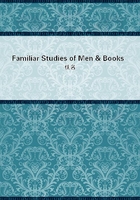
第50章
It was at this period that Mr. Masaki was brought into personal contact with Yoshida; and hence, through the eyes of a boy of thirteen, we get one good look at the character and habits of the hero. He was ugly and laughably disfigured with the smallpox; and while nature had been so niggardly with him from the first, his personal habits were even sluttish. His clothes were wretched; when he ate or washed he wiped his hands upon his sleeves; and as his hair was not tied more than once in the two months, it was often disgusting to behold. With such a picture, it is easy to believe that he never married. A good teacher, gentle in act, although violent and abusive in speech, his lessons were apt to go over the heads of his scholars and to leave them gaping, or more often laughing. Such was his passion for study that he even grudged himself natural repose; and when he grew drowsy over his books he would, if it was summer, put mosquitoes up his sleeve; and, if it was winter, take off his shoes and run barefoot on the snow. His handwriting was exceptionally villainous; poet though he was, he had no taste for what was elegant; and in a country where to write beautifully was not the mark of a scrivener but an admired accomplishment for gentlemen, he suffered his letters to be jolted out of him by the press of matter and the heat of his convictions. He would not tolerate even the appearance of a bribe; for bribery lay at the root of much that was evil in Japan, as well as in countries nearer home; and once when a merchant brought him his son to educate, and added, as was customary, (1) a little private sweetener, Yoshida dashed the money in the giver's face, and launched into such an outbreak of indignation as made the matter public in the school. He was still, when Masaki knew him, much weakened by his hardships in prison; and the presentation sword, three feet long, was too heavy for him to wear without distress; yet he would always gird it on when he went to dig in his garden.
That is a touch which qualifies the man. A weaker nature would have shrunk from the sight of what only commemorated a failure. But he was of Thoreau's mind, that if you can "make your failure tragical by courage, it will not differ from success." He could look back without confusion to his enthusiastic promise. If events had been contrary, and he found himself unable to carry out that purpose - well, there was but the more reason to be brave and constant in another; if he could not carry the sword into barbarian lands, it should at least be witness to a life spent entirely for Japan.
(1) I understood that the merchant was endeavouring surreptitiously to obtain for his son instruction to which he was not entitled. - F. J.
This is the sight we have of him as he appeared to schoolboys, but not related in the schoolboy spirit. A man so careless of the graces must be out of court with boys and women. And, indeed, as we have all been more or less to school, it will astonish no one that Yoshida was regarded by his scholars as a laughing-stock. The schoolboy has a keen sense of humour. Heroes he learns to understand and to admire in books; but he is not forward to recognise the heroic under the traits of any contemporary man, and least of all in a brawling, dirty, and eccentric teacher. But as the years went by, and the scholars of Yoshida continued in vain to look around them for the abstractly perfect, and began more and more to understand the drift of his instructions, they learned to look back upon their comic school-master as upon the noblest of mankind.